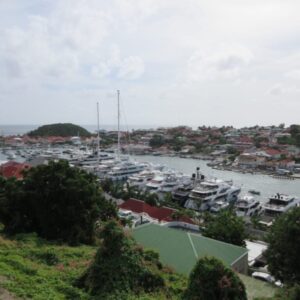Viability
Editorial taken from The Daily Herald, published July 6th, 2009
News that the Executive Council has approved the Emergency Marketing Fund totalling more than four million guilders (US $2.3 million) diverted from the Social Economic Initiative (SEI) comes none too soon. After all, the initiative to make extra means available for tourism marketing and promotion as a result of the global financial crisis and its impact on holiday travel is almost six months old.
That it took so long despite the term “emergency” has a lot to do with part of the money (2.2 million guilders) coming from Dutch development funds that needed to be redirected, but in the end it’s a case of “better late than never.” At least the funds are now in place, so that the plans can be executed.
Some have questioned whether investing the money in marketing and promotion makes much sense at all, considering the decline in travel especially in the island’s main market, North America. However, with its one-pillar tourism economy St. Maarten has little choice but to try to attract more visitors and keep the local business community that depends on them going as much as possible.
Besides, experience in the last few months has shown that with attractive airfares, discounts and favourable room rates people will still come and spend money while here anyway, although perhaps somewhat less. The higher loyalty factor when it comes to the dominant timeshare sector as compared to regular hotel guests no doubt also plays a positive role.
At this late date the focus of the emergency marketing obviously will have to be on the upcoming high (winter) season. The St. Maarten Hospitality and Trade Association (SHTA) had already stated that to do so the process to obtain the funds would have to be finalised by the end of July, which now appears to be the case.
As far as other measures to alleviate the crisis are concerned, the Economic Stimulus Plan that came out of the Economic Summit is being looked at by the new National Alliance/Heyliger Executive Council. This, despite the fact that the SHTA says the document provides no concrete relief for local businesses and residents.
It is fair to say, however, that coming up with measures that don’t financially burden the already cash-strapped governments or local consumer is far from easy. The SHTA in its most recent bi-monthly publication came up with a few proposals of its own, which on closer scrutiny might not be that practical or easy to execute either. For example, giving tax breaks to businesses that offer discounts of 20 per cent or more to consumers sounds good, but would be difficult, if not impossible, to control. At the same time, tax breaks lie largely in the hands of the Antillean Government in Willemstad rather than the Island Government in Philipsburg, which will, however, receive less income if it involves profit, income or even turnover tax.
Lower commercial electricity and water prices is a controversial matter, as businesses often already have relatively lower rates than the average household and the question is whether “regular” consumers would ultimately end up footing the bill. There reportedly are even some cases already where accommodations that should not have lower rates because of their nature are still receiving them.
Reducing the cost of housing through zoning, lower construction cost and tax incentives for local housing developments appears a noble undertaking, but obviously would take some time when it comes to zoning, while it’s not clear how construction cost can be reduced and any tax incentive again goes at the expense of government’s income.
The need for a better educational and vocational training system that is more geared towards the reality of the local labour market obviously is something with which most will agree, but falls under the category “what else is new?”
All in all, there really appears to be no “ quick-fix ” for the local consequences of the global downturn and attracting more visitors the island remains the only truly viable short-term option “The Friendly Island” has.
Source: The Daily Herald



